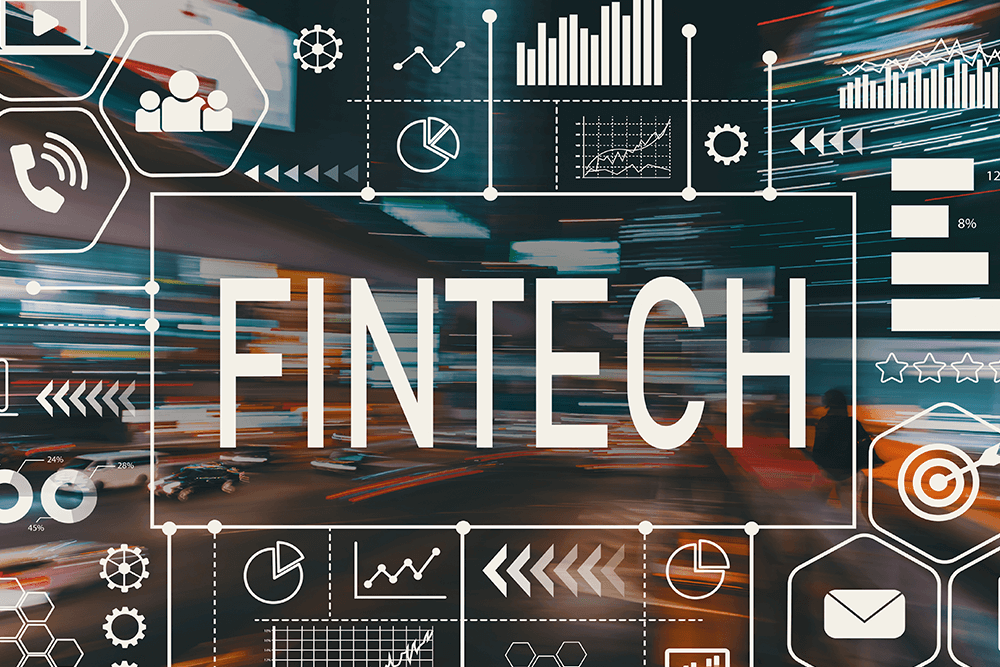The Top 5 Fintech Trends Everyone Should Be Watching
2 July 2021
All indicators confirm that investment in fintech, new technology that can improve and automate financial services, is skyrocketing and is expected to exceed $30 billion by 2020. This investment will translate into dramatic time and cost savings and enhancements to service offerings from financial institutions. Here are the top 5 fintech trends everyone should be watching in 2020 because they will impact anything that involves money.

For many years, marketing experts espoused the benefits of personalization to attract customers and keep them loyal. Today, thanks to big data and artificial intelligence that helps us process, store, and drive insights from the data, hyper-personalization is possible on an unprecedented scale. Financial institutions now have information about their customers’ behaviour and social and browsing history. AI facilitates real-time omnichannel integration of these insights to deliver a personalised one-to-one marketing experience for their customers at the time when the information is most relevant and useful.
2. Robotic process automation (RPA)
During 2020, robotic process automation (RPA) will continue to impact financial institutions to help them be more efficient and effective as well as help ensure they meet federal and state compliance requirements. Today’s advanced RPAs don’t have to be explicitly programmed to perform tasks; they can simply observe what humans do and then automate or suggest improvements to processes. This includes processes such as customer onboarding, verification, risk assessments, security cheques, data analysis and reporting, compliance processes as well as most other repetitive administrative activities.
3. Conversational interfaces
According to Gartner, by 2020, chatbots will interact with the customers of 85% of banks and businesses. By eliminating human involvement in these interchanges, productivity, and speed improve. In fact, according to one report, financial chatbots save over four minutes on every interaction. This is a booming area due to the progress made in natural language processing and speech generation. Customers of financial institutions have come to rely on conversational interfaces to provide 24/7 service, instant responses to queries, and quick complaint resolution to improve personal banking significantly. Conversational interfaces also provide an easy and economical way for organisations in the financial sector to receive customer feedback.
4. Blockchain
Blockchain, a special immutable computer file that is decentralised and distributed, is disrupting financial institutions. Blockchain can make things more efficient in the financial services industry. Since fraud and identity theft cost financial institutions billions of dollars annually, blockchain has the potential to save the industry from experiencing these significant losses. Blockchain in fintech is expected to reach $6,700 million by 2023 in the United States. Financial institutions will use blockchain for smart contracts, digital payments, identity management, and trading shares.
5. Mobile payment innovations
One of the latest “big things” in fintech is the growth of the mobile payments industry. Consumers want payments to be instant, invisible, and free (IIF). Mobile payment innovations might even do away with our traditional wallets as global consumers are less reliant on cash. Google, Apple, Tencent, and Alibaba already have their own payment platforms and continue to roll out new features such as biometric access control, inducing fingerprint, and face recognition. One of the most popular payment methods in China and used by hundreds of millions of users every day is WeChat Pay. Alibaba’s Alipay, a third-party online and mobile payment platform, is now the world’s largest mobile payment platform. Many mobile payment platforms are building programmes and offers based on the user’s purchase history.
While many financial institutions are continuing to adopt new technology to enhance operations and improve customer service, these five trends will provide exciting avenues for innovation. Financial institutions realise they must learn how to use fintech to their competitive advantage.
Related Articles
Human Plus AI: Redefining Work In The Age Of Collaborative Intelligence
By now, “smart” versions exist of just about every home appliance, gadget and gizmos we can think of. However, manufacturers continue[...]
Why We Don’t Have Real Quantum Computing Yet
By now, “smart” versions exist of just about every home appliance, gadget and gizmos we can think of. However, manufacturers continue[...]
The Best Generative AI Courses Money Can Buy
By now, “smart” versions exist of just about every home appliance, gadget and gizmos we can think of. However, manufacturers continue[...]
Spotify’s Bold AI Gamble Could Disrupt The Entire Music Industry
By now, “smart” versions exist of just about every home appliance, gadget and gizmos we can think of. However, manufacturers continue[...]
Why 54% of Customers Are Disappointed: 5 CX Mistakes Your Business Can’t Afford
By now, “smart” versions exist of just about every home appliance, gadget and gizmos we can think of. However, manufacturers continue[...]
Leadership At Warp Speed: How To Drive Success In The Era Of Agentic AI
By now, “smart” versions exist of just about every home appliance, gadget and gizmos we can think of. However, manufacturers continue[...]
Sign up to Stay in Touch!
Bernard Marr is a world-renowned futurist, influencer and thought leader in the fields of business and technology, with a passion for using technology for the good of humanity.
He is a best-selling author of over 20 books, writes a regular column for Forbes and advises and coaches many of the world’s best-known organisations.
He has a combined following of 4 million people across his social media channels and newsletters and was ranked by LinkedIn as one of the top 5 business influencers in the world.
Bernard’s latest book is ‘Generative AI in Practice’.










Social Media